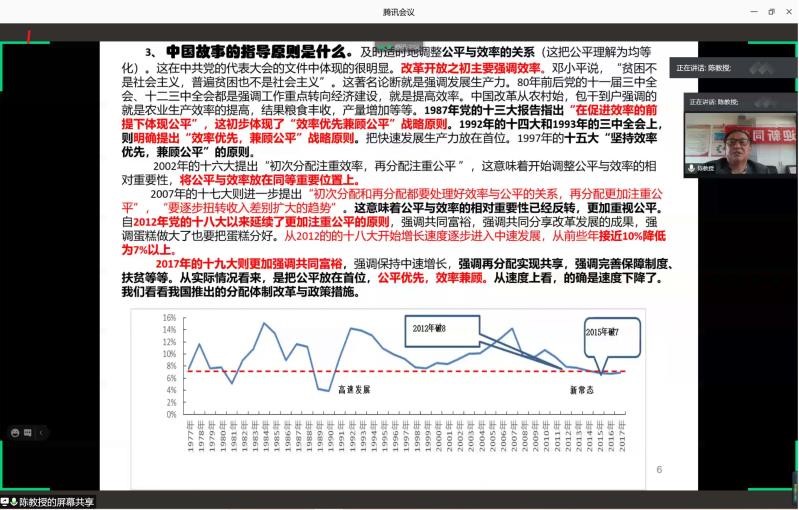On the afternoon of Oct.25th, Dean of the China Institute of Wealth and Economics of Nankai University, as well as the Ivy League Professor of the School of Business in Shandong University, Prof. Chen Zongsheng, delivered an academic lecture with the topic of “Changes on the Track and the Structure of Residential Income Distribution Gap in China—The Chinese Way and Experience on Eliminating Poverty and Achieving Common Prosperity”. About 200 teachers and students from the School of Business engaged in in-depth exchanges of views with Prof. Chen Zongsheng. This academic lecture was hosted by the Deputy Dean of the School of Business, Prof. Chen Xuesheng.
A detailed analysis on five important economic issues was made by Prof. Chen Zongsheng. At first, he shared the story of the China’s Reform and Opening-up including the content, essence and the principle. China’s Reform and Opening-up was rooted in the reform of distribution and the incentive system. The essence and core task of China’s reform and opening-up is to make adjustments on the relationship between efficiency and fairness at an appropriate time and in a moderate way. Then, Prof. Chen Zongsheng proposed that the overall difference of personal income in China has already passed the turning point and declined, and the equality of the income distribution has been improved. Prof. Chen also explained the distribution of China’s residential income in detail. The horizontal structure of the distribution of China’s personal income is changing from the Pyramidal Shape to the Gourd Shape, instead of the Olive Shape. It’s still far from the Olive Shape. Finally, Prof. Chen shared his own views on the imbalanced development between urban and rural areas as well as the urbanization. He also expressed his ideas on how to promote the rural revitalization and urban-rural integration as well as how to eliminate the dual unequal opportunity.
At the Q&A part, Prof. Chen Zongsheng had deep interactions and discussions with the teachers and students on the following problems: the problem of ROI(Return on Investment) in urban and rural infrastructure construction, the employment of rural residents from rural to urban areas, the impact of market-oriented reforms on labor mobility, how to prevent the emergence of slums in the process of urbanization, why the total income gap of residents declined in 2008 and how the pandemic of the novel coronavirus will affect the gap in total income of residents.

 Academic news
>
Content
Academic news
>
Content